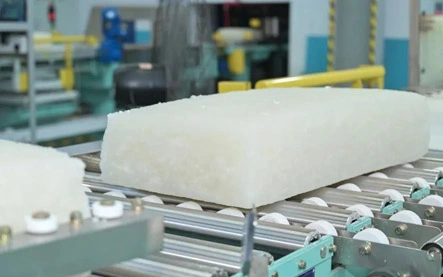

The rise of electric vehicles (EVs) has been one of the most significant technological advancements of the past decade. With the world moving towards a more sustainable future, the demand for EVs is only set to increase. This has led many industries to reassess their operations, including the tyre manufacturing industry. In this article, we will discuss the impact that EVs are having on tyre manufacturers and what the future holds for this industry.
The current state of the tyre manufacturing industry
The tyre manufacturing industry has been around for over a century, and its products have played a crucial role in the mobility of people and goods. Tyres are an essential component of any vehicle, providing grip, stability, and comfort. However, the rise of EVs has challenged the traditional tyre manufacturing industry, which was largely geared towards producing tyres for internal combustion engines (ICE) vehicles.
The differences between EVs and ICE vehicles
One of the key differences between EVs and ICE vehicles is the type of tyre required. Tyres for EVs are designed to handle the unique demands of electric powertrains, such as the higher weight of the vehicle and the torque generated by the electric motor. The result is that EV tyres are often different in terms of size, construction, and tread pattern, compared to those designed for ICE vehicles.
The impact on tyre manufacturers
The rise of EVs has led to an increase in demand for specialised EV tyres. This has presented an opportunity for tyre manufacturers to expand their product range and cater to this growing market. However, the development of new tyre technologies and the high costs associated with production have meant that many tyre manufacturers have been slow to adapt. Those who have been quick to embrace the challenge have been able to secure a place in the market and benefit from the growth in demand.
The future of tyre manufacturing
The future of tyre manufacturing is closely tied to the future of EVs. As the demand for EVs continues to grow, the demand for specialised EV tyres will also increase. Tyre manufacturers who are able to effectively address this demand will have a significant advantage in the market. However, the challenge for tyre manufacturers will be to keep pace with the rapid technological advancements in the EV industry and to continue to innovate and develop new tyre technologies that meet the needs of EVs.
The importance of sustainability
Sustainability is becoming an increasingly important consideration for consumers, and this is also true for the tyre manufacturing industry. Tyre manufacturers who are able to demonstrate their commitment to sustainability will have a significant advantage in the market. This includes using sustainable materials in the production of tyres, reducing waste and emissions, and developing recyclable tyres.
The role of government and regulation
The role of government and regulation in the tyre manufacturing industry is also set to play an important role in the future. Governments around the world are introducing measures to encourage the adoption of EVs, and this is likely to impact the tyre manufacturing industry. Regulations around tyre safety, performance, and sustainability are likely to become more stringent, and tyre manufacturers will need to be able to comply with these regulations in order to remain competitive.
Conclusion
The rise of EVs is having a significant impact on the tyre manufacturing industry, presenting both challenges and opportunities. Tyre manufacturers who are able to effectively address the demand for specialised EV tyres, demonstrate their commitment to sustainability, and comply with regulations, will be well-positioned to thrive in the future. The future of tyre manufacturing is closely tied to the future of EVs, and it is an exciting time for the industry as it navigates this rapidly evolving landscape.
We Value Your Privacy.
Our website uses cookies to improve your experience. By clicking "Accept All Cookies", you agree to the storing of cookies on your device to enhance site navigation, analyze site usage, and assist in our marketing efforts.
 English
English 日本語
日本語 한국어
한국어 français
français Deutsch
Deutsch Español
Español italiano
italiano русский
русский português
português العربية
العربية tiếng việt
tiếng việt





